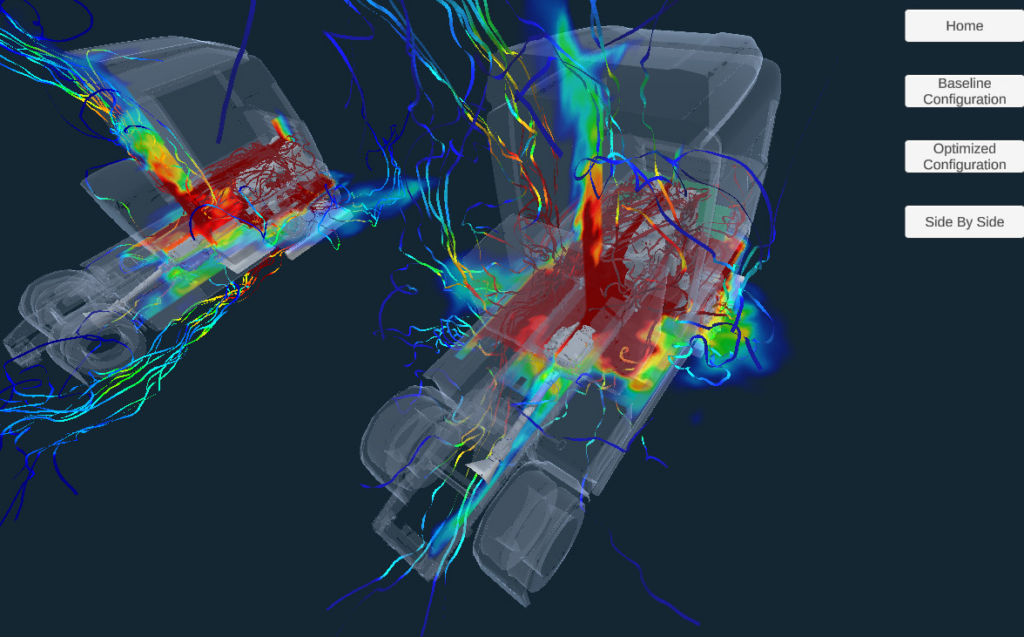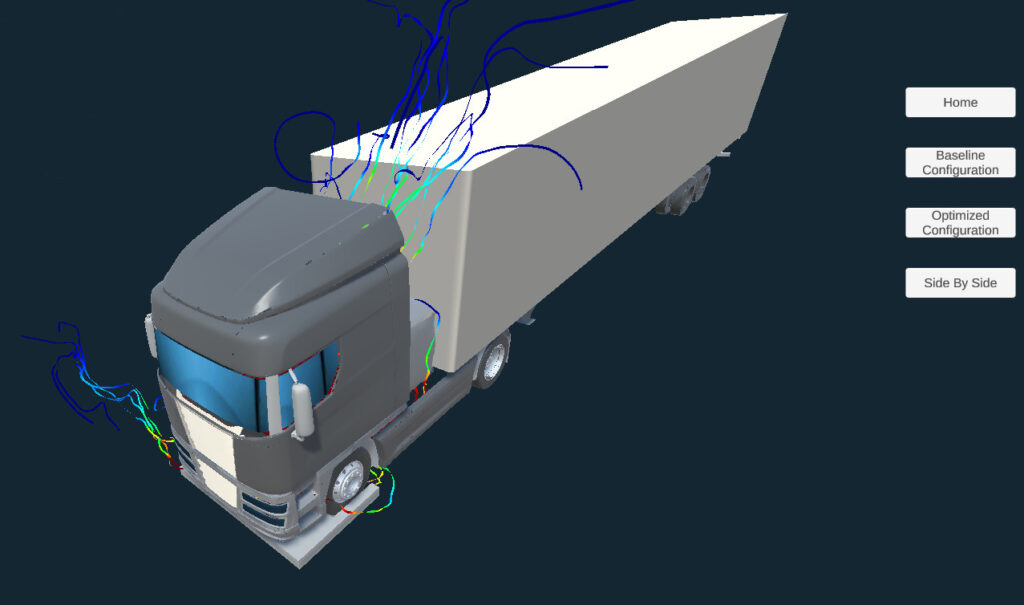Thermal Management During Fast Charging of an Electric Truck

One of the constraints with electric vehicles is the temperature control of the main components in the electric system. Thermal control is necessary for efficiency, security, reliability and longevity of the system. For example, during the charging process, the temperature of the charger must be maintained within a given range. When the temperature exceeds the upper limit, the charging becomes less efficient leading to a further heating of the charger itself that can lead to the deterioration of the unit or its failure.
Proper cooling must be incorporated in the charging system to control the operating temperature. The demo shows an electric truck hooked up to a charging station. During the fast charging process, heat is removed from the charger located underneath the truck by a cooling circuit running through a radiator located behind the front grilles. The cooling efficiency is strongly reduced when hot air recirculates to the front opening of the radiator.

The first model shows recirculating air present on the right side of the truck. Flow analysis shows the recirculating paths. Panels are introduced around and below the radiator to reduce air recirculation and improve the cooling performance. The second simulation shows the improved design.
Now it’s your turn! Come try this experience for yourself and let us know in the SIMULIA Community how you make out! You can also connect with our technical experts in the community to learn more.
Thermal Management During Fast Charging of an Electric Truck: https://env28test.ag.3ds.com/truckCharger

Interested in the latest in simulation? Looking for advice and best practices? Want to discuss simulation with fellow users and Dassault Systèmes experts? The SIMULIA Community is the place to find the latest resources for SIMULIA software and to collaborate with other users. The key that unlocks the door of innovative thinking and knowledge building, the SIMULIA Community provides you with the tools you need to expand your knowledge, whenever and wherever.

